Here is a compact table listing all of the Senate candidates.
The current breakdown of the Senate is as follows (where we count the two independents as Democrats):
- 26 Democratic seats up for reelection in 2018 and 23 seats not up, for a total of 49 seats
- 9 Republican seats up for reelection in 2018 and 42 seats not up, for a total of 51 seats
In a reversal from 2016, the Democrats will be playing defense, trying to hold the 10 seats in states that Donald Trump won. There is only one Republican seat, that of Sen. Dean Heller (R-NV), in a state that Hillary Clinton won.
The Democratic-held seats are listed first below, in alphabetical order by state, with the independent and Republican ones following.
Click on a picture for the candidate's webpage.
Click on a name for the candidate's entry in Wikipedia.
Click on a party (D) or (R) for the state party.
The  indicates a race to watch.
indicates a race to watch.
All links open in a new window. Type CTRL-W in the window to close it (Command-W on a Mac).
Democratic-held seats
California
| Incumbent | Challenger | Notes Polls |

Dianne Feinstein (D) |

Kevin de Leon (D) |
Dianne Feinstein will be 85 on Election Day, which is well past retirement age in most professions, but is middle aged in a body where members sometimes linger past the century mark (see Thurmond, Strom). Thanks to California's jungle primary system, her opponent is Kevin de León (D), President Pro Tem of the state senate. He's a fair bit leftier than she is, and while some California voters are not thrilled with Feinstein's moderate stances on issues, and her unwillingness to rip Donald Trump to shreds, there are not enough of those folks to swing the outcome in de León's direction. Polls consistently give Feinstein a 20-point lead, and she is going to win her fifth full term (sixth overall). |
Connecticut
| Incumbent | Challenger | Notes Polls |

Chris Murphy (D) |

Matthew Corey (R) |
Nothing to see here. Murphy is popular in his home state, is a leading Trump critic, and won his first Senate election by 11 points. His Republican opponent last time was WWE millionaire Linda McMahon, who isn't much of a politician, but at least had the ability to self-fund. This time it's Matthew Corey, a naval veteran and perennial candidate who sometimes runs for office as an independent and sometimes as a Republican. He is not wealthy and cannot self-fund. Since he has raised only $31,000, that's something of a problem. In other words, expect Murphy to improve on that 11-point result from last time. |
Delaware
| Incumbent | Challenger | Notes Polls |

Tom Carper (D) |

Rob Arlett (R) |
Given how many seats the Democrats need to defend in 2018, they are lucky that quite a few of them are safe. Delaware is in that category; the state is very blue, and Carper has a 2-to-1 approve-to-disapprove ratio. He's gotten a lot of attention for his battles with EPA Administrator Scott Pruitt, and appears set to make global warming and the environment the centerpiece of his re-election pitch. The Republican will be Sussex County councilman Rob Arlett, who is unknown to most residents of the Diamond State. That's a tough hill to climb under any circumstances, and given that Arlett didn't get the nomination until Sept. 6, it's that much steeper. Translation: Arlett is dead meat. |
Florida 
| Incumbent | Challenger | Notes Polls |

Bill Nelson (D) |

Rick Scott (R) |
Nelson enjoys wide approval, has collected nearly $4 million in contributions already, and seems likely to benefit from the national political climate. After all, if Democrats can make R+10 and R+16 districts competitive thanks to anti-Trump sentiment, then an R+2 state should be a relative cakewalk. However, term-limited Gov. Rick Scott needs a new job and has decided he wants Nelson's. Scott has universal name recognition in Florida and more-or-less unlimited personal funds to spend on the campaign, so this will be the mother of all Senate races. Scott is a very hard worker and has already visited Puerto Rico half a dozen times to show the 300,000 Puerto Ricans in the state that Donald Trump may not care about what happened to the island after the hurricanes, but he does. Scott is no shoo-in, however. He won each of his gubernatorial races by 1 point, both in Republican wave years. In contrast, Nelson has won three Senate races by 5, 22, and 13 points respectively. Finally, the reelection rate for senators in the opposition party in midterm elections is 91%. It is sure to be a real humdinger, and polls thus far have it as a tossup. Scott has been flooding the airwaves with ads, while Nelson has kept his money in reserve, but that is about to change. So, Nelson might pick up some momentum in the next few weeks. |
Hawaii
| Incumbent | Challenger | Notes Polls |

Mazie Hirono (D) |

Ron Curtis (R) |
Hawaii is the bluest state in the Union, and Hirono has solid approval ratings. The only thing she had to fear is a challenge from the left, and the likeliest candidate to do so—Rep. Tulsi Gabbard (D)—opted out of the race. The Republicans managed to find a sacrifical lamb in Ron Curtis, but Hirono will cruise to a landslide reelection. |
Indiana 
| Incumbent | Challenger | Notes Polls |
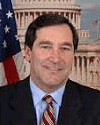
Joe Donnelly (D) |

Mike Braun (R) |
This has the potential to be a tough race for Donnelly. On one hand, he has a good but not great approval rating (41%, compared to 34% disapproval), his fundraising is going well ($11.5 million so far), and he's got the advantages of incumbency. On the other hand, Indiana's a red state that Donald Trump won by 19 points, and Donnelly only won his first Senate race because tea partier Richard Mourdock shared his views on rape being a part of God's plan. The Republican bench is deep in Indiana, and several prominent members of the Party ran in the primary, but emerging victorious was Mike Braun, a Trump-loving businessman who also served in the Indiana house from 2014 to 2017. Thanks to the bruising primary campaign, Braun's finances are a mess; his campaign has $1 million on hand, and over $6 million in debts. That's very bad news for him, since name recognition is an issue, and the latest poll has Donnelly up 12 points. The Senator's Achilles heel is Brett Kavanaugh; a vote against Trump's SCOTUS nominee could make a race of it. Failing that, however, Donnelly is in better shape than if one of the better-known Republicans had won the primary |
Maryland
| Incumbent | Challenger | Notes Polls |
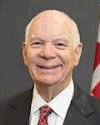
Ben Cardin (D) |

Tony Campbell (R) |
Ben Cardin wants a third term, and he will get it. After all, he is only a kid (in Senate years) at 74. Tony Campbell, a professor at Towson university, won the Republican primary and will try to collect some money, if possible, and give a few speeches. Mostly, he will get some great stories to tell his students after Cardin crushes him in November. |
Massachusetts
| Incumbent | Challenger | Notes Polls |
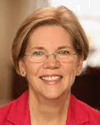
Elizabeth Warren (D) |

Geoff Diehl (R) |
Warren has a huge national profile, is leading the 2018 field in fundraising ($30 million), has one of the highest approval ratings in the Senate (53%), and is a leader of the opposition to President Trump. In short, although she took only 54% of the vote in her first Senate election, she's a heavy favorite to win a second term. Massachusetts is not averse to electing Republicans, including Gov. Charles D. Baker and Lt. Gov. Karyn Polito. The problem the GOP is facing is that none of their top-flight candidates wants to run. This being the case, they are stuck with a collection of second-tier options, none of whom is a threat to Warren. They chose Geoff Diehl, who co-chaired Donald Trump's reelection campaign in the Bay State. That is not likely to endear him to 50.1% of voters. |
Michigan
| Incumbent | Challenger | Notes Polls |

Debbie Stabenow (D) |

John James (R) |
Debbie Stabenow eked out a victory in her first Senate race, defeating incumbent Spencer Abraham (R) 49.5% to 48%. Since then, she's won by 16 and 21 points, so she's clearly good at harnessing the power of incumbency. That said, her approval ratings are only middling (40%), and Michigan is fairly purple these days. So, Republicans hoped that Stabenow's seat would be a pickup opportunity. However, they couldn't find a top-tier candidate, and ended up with political unknown John James. James is an intriguing candidate; a decorated Army veteran and an outspoken Trump lover who is also black. The GOP might have thought James could pick up some support among black voters in Detroit and other urban areas, and that plus the Trump-loving vote would make a contest of this thing. It's not happening, though, as polls give consistently Stabenow a lead in the 20-point range. Republican politicians have been campaigning with James in hopes of getting his name recognition up, but if something doesn't change in the polls very quickly, both parties will spend their money elsewhere, and Stabenow will spend the next two months set on cruise control. |
Minnesota
| Incumbent | Challenger | Notes Polls |

Amy Klobuchar (D) |

Jim Newberger (R) |
Amy Klobuchar is one of the most popular members of the Senate (60% approval), has already raised nearly $10 million for her re-election campaign, and won her previous Senate elections by 35 and 21 points. She benefited enormously from the fact that the open governor's mansion, and the other senate race (where Democrat Tina Smith is much more vulnerable) siphoned off any top-tier competitor that might have challenged her. Her opponent is state rep. Jim Newberger (R), whom she will crush. |
Minnesota-special
| Incumbent | Challenger | Notes Polls |
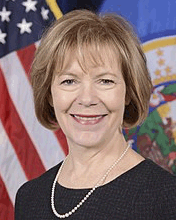
Tina Smith (D) |

Karin Housley (R) |
Al Franken's seat wasn't up in 2018, but due to his resignation from the Senate, a special election will be held for it in 2018. Appointed senator Tina Smith is running to keep her job in her own right. She drew a potentially serious primary challenger in Richard Painter, a Republican who used to work for George W. Bush and who switched parties. Surprise! The state's Democrats preferred a Democrat to a Republican and Smith won easily. Republicans had trouble finding an A-list candidate and ending up with State Senator Karin Housley, whose major claim to fame is being married to Hockey Hall of Famer Phil Housley. Smith is fairly safe. |
Missouri 
| Incumbent | Challenger | Notes Polls |

Claire McCaskill (D) |

Josh Hawley (R) |
Few incumbents face a more daunting challenge in 2018 than Claire McCaskill. Her approval ratings are underwater (40% approve, 44% disapprove) and Donald Trump won her state by nearly 20 points. She's already the subject of a commercial blitz hammering her for her support of Planned Parenthood, her opposition to repealing the ACA, and her failure to solve Missouri's opioid-addiction crisis (as if a U.S. Senator somehow has the power to end drug abuse). She's also gotten some flack for traveling around the state in her private jet, which some see as elitist. Her opponent is Missouri AG Josh Hawley (R), who is also a mixed bag. On one hand, he's young and charismatic, and has won a statewide election before. On the other hand, he did not impress female voters when he attributed a wide range of social ills to the sexual revolution of the 1960s. He's also got something of a problem deciding exactly what his opinion is on tricky issues, like legalized marijuana. In an effort to portray himself as down-to-earth and folksy, Hawley is traveling around the state and delivering speeches from a flatbed truck, sometimes adorned with bales of hay. There are, of course, no bales of hay on private jets. He also wants to have debates with McCaskill, as many as is possible, since he needs the name recognition more than she does. This one is going to be very close. |
Montana 
| Incumbent | Challenger | Notes Polls |

Jon Tester (D) |

Matt Rosendale (R) |
Montana is a tough state to get a read on. On one hand, Donald Trump won there by 20 points, and Greg Gianforte just claimed a comfortable victory in the race for the state's only Congressional seat despite having beaten up a reporter on the eve of the election. On the other hand, Montana's governor is a Democrat, and Tester has managed to get elected twice (albeit by slim margins). If his opponent were Ryan Zinke, Tester would be sweating right now, but Zinke chose to become Secretary of the Interior instead. So the state's Republicans picked their second choice, State Auditor Matt Rosendale, who is quite conservative, but has the liability that he's a fairly recent arrival in Montana (2000), which makes him a bit of a carpetbagger compared to Tester (whose family has been in the state for a century). Rosendale has a strong Maryland accent, so every time he opens his mouth, he reminds the voters that he is not a Montana native. Couple that with Tester's strong popularity, rating (50% approve, 36% disapprove), and you get a race where the Democrat is a slight favorite, despite the lean of the state. |
New Jersey
| Incumbent | Challenger | Notes Polls |

Bob Menendez (D) |
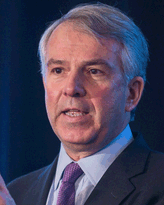
Bob Hugin (R) |
New Jersey hasn't sent a Republican to the Senate since 1972, so this seat is likely to remain in Democratic hands next year. However, Bob Menendez has been connected to a shady eye doctor named Dr. Salomon Melgen, who is now a convicted felon, and Menendez was indicted for taking bribes from him. The trial resulted in a hung jury and the government decided to drop the case, so Menendez got off. The voters may or may not be so kind, however. The Republicans came up with Bob Hugin, a wealthy former pharmaceutical executive who can (and will have to) pour millions of dollars into a campaign with ads in the expensive New York and Philadelphia markets. Hugin has his own liabilities, though, including ties to former governor Chris Christie and Donald Trump, both of whom are toxic in the Garden State. His company was sued for $250 million for marketing drugs for unapproved uses, and he's also being attacked for the high price of drugs that were used correctly. On top of all this, Hugin used to be a Democrat. So, despite the air of corruption that surrounds him, Menendez is strongly favored. |
New Mexico
| Incumbent | Challenger | Notes Polls |

Martin Heinrich (D) |

Mick Rich (R) |
Martin Heinrich is only moderately popular in his home state, but New Mexico's blueward trend works in his favor. So too does the fact that the New Mexico governor's mansion will be vacant, so the state's top Republican, Rep. Steve Pearce, decided to go for that instead of the Senate. The best the GOP could do was to get wealthy businessman Mick Rich. He is completely unknown and if he wants to, he can spend millions to improve his name recognition, but trying to unseat an incumbent senator in a fairly blue state won't be easy. The late entry of former governor Gary Johnson as the Libertarian candidate introduced a wild card into the race, but Heinrich is nonetheless strongly favored here. |
New York
| Incumbent | Challenger | Notes Polls |

Kirsten Gillibrand (D) |

Chele Farley (R) |
Donald Trump is not popular in his very blue home state, and Gillibrand has been a leader of the anti-Trump forces in Congress, giving her national stature. Though New York is very populous, the GOP bench is pretty thin, and few Republicans want to subject their career to the Gillibrand buzz saw. In the state's last two Senate elections, Wendy Long was the GOP's sacrificial lamb; She lost to Gillibrand by 53 points in 2012, and to Sen. Chuck Schumer by 43 in 2016. Long got the message and declined to run again. This time, private equity executive Chele Chiavaci Farley will be the one Gillibrand will obliterate, probably by an even larger margin because her name is harder to remember than "Wendy Long." Farley's big issue is "Put New York First," by which she means she has a problem with New York paying the federal government $48 billion more than it gets back from the federal government. But given Donald Trump's policy of sticking it to the blue states, even if she won, she would get nowhere. But she won't win, so it doesn't matter. |
North Dakota 
| Incumbent | Challenger | Notes Polls |
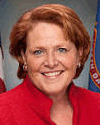
Heidi Heitkamp (D) |
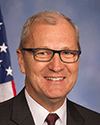
Kevin Cramer (R) |
There's no question that North Dakota is Trump territory—he won the state by 36 points. Further, Heitkamp is the only Democrat serving North Dakota at the state or federal levels, and her first Senate victory—aided by the coattails of Barack Obama—was very thin, 50.5% to 49.5%. So, she certainly has her work cut out for her. That said, the Senator knows how to win in the Roughrider State: Essentially, pretend you're not a Democrat. After all, the official name of the state party is the North Dakota Democratic-Nonpartisan League Party. Heitkamp has pointedly refused to "join" the Trump opposition, and has given her vote to more of his cabinet nominees than any other Democratic senator, while also supporting many of his regulation rollbacks. The GOP was hoping that Rep. Kevin Cramer (R) would agree to challenge Heitkamp, but he said no. Then he said yes. Despite the Republican tilt of the state, Cramer is no shoo-in. Heitkamp has won statewide election three times, has a ton of money in the bank (over $5 million, a veritable fortune in North Dakota, where advertising is cheap), and is personally quite popular. It will be a close race. |
Ohio
| Incumbent | Challenger | Notes Polls |

Sherrod Brown (D) |

Jim Renacci (R) |
Democrats are watching this one carefully, not only because it's a battleground state, but because Sherrod Brown might provide a template for how the party can win in the Midwest going forward. He's a liberal, but one with strong populist leanings. He laments trade agreements, for example, and is strongly pro-union. At the same time, Brown disdains the divisiveness of Donald Trump, declaring that you have to be for all the "little guys" or for none of them. He's also been critical of many Trump appointments, remarking that the White House "looks like a retreat for Goldman Sachs executives," and has insisted that the financial sector must be reined in. Because Brown has played his hand so well, Ohio is another state where the GOP had trouble recruiting top-notch talent. State Treasurer Josh Mandel (R) entered the race but later dropped out due to issues with his wife's health. Term-limited Gov. John Kasich (R) would certainly give Brown a run for his money, but he's keeping his powder dry for 2020. In the end, Rep. Jim Renacci (R-OH) got the nomination, but he is not a great campaigner and is being hit for his maybe-too-close relationship with some of Ohio's business tycoons. At the moment, Brown is leading by double digits. If Brown wins big, he will immediately be on the radar for POTUS or VPOTUS in 2020. |
Pennsylvania
| Incumbent | Challenger | Notes Polls |

Bob Casey (D) |

Lou Barletta (R) |
Bob Casey has made an interesting choice, given that he comes from a state won by Donald Trump: He's rapidly evolved from a quiet moderate to an outspoken member of the resistance. It's probably a wise call; Trump won the Keystone State by the barest of margins, and Casey is counting on Democratic enthusiasm to carry the day in November. Working to his advantage, given how expensive it is to campaign in Pennsylvania, is that he's doing very well in the fundraising department—his $18.6 million trails only a handful of his colleagues. There was a nasty primary and former Hazelton mayor and former congressman Lou Barletta, who made his fortune owning a road-marking company, won. He is a staunch supporter of Donald Trump, but in the current climate, that is probably not going to be enough. Casey is going to have to work at it, but most likely by the end, Barletta will be lying on the ground with a double yellow line painted over him. Polls consistently give Casey a comfortable double-digit lead, and potential Barletta donors—like the Kochs—are fleeing. |
Rhode Island
| Incumbent | Challenger | Notes Polls |

Sheldon Whitehouse (D) |

Robert Flanders (R) |
Rhode Island is one of the bluest states in the country, with a grand total of zero Republicans holding office at the state and federal levels. Whitehouse won his last Senate race by 30 points. So, there's not much drama here. Associate Justice of the Rhode Island Supreme Court Robert Flanders has decided that he has decided enough cases and wants to go to the Senate. Someone ought to tell him not to get his hopes up because he's not going anywhere. |
Virginia
| Incumbent | Challenger | Notes Polls |
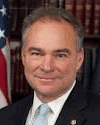
Tim Kaine (D) |

Corey Stewart (R) |
Tim Kaine has solid approval numbers (45% approve; 35% disapprove), and comes from the only Southern state to go for Hillary Clinton. He's been raking in the money (more than $18 million so far); that, and the high stature that comes from his VP run means that he's in great position to be elected to a second Senate term. His opponent is Prince William County Board of Supervisors Chair Corey Stewart, who is fresh off an unsuccessful run for governor. Stewart is a Trump man, through and through, who does not seem to have noticed that Virginia went for Clinton-Kaine by six points. Then it went for Gov. Ralph Northam (D-VA) by 9 points. Or maybe Stewart did notice, because he's trying very hard to paint Kaine as a far-left supporter of Antifa, even using (doctored) Photoshop evidence to make the case. In the end, he's not going to cause Kaine to lose much sleep. On the other hand, he is going to cause the state GOP to lose a lot of sleep, since he is probably going to take down Rep. Barbara Comstock (R-VA) and maybe others lower down on the ticket. |
Washington
| Incumbent | Challenger | Notes Polls |

Maria Cantwell (D) |

Susan Hutchison (R) |
Maria Cantwell is an outspoken opponent of Donald Trump, and has hewed to a Bernie Sanders-style party line, including a $15 minimum wage, aggressive protections for the environment, and healthcare for all. All of this makes her very popular in Washington, and an overwhelming favorite to be elected to a fourth term. While there are some heavy-hitting Republican politicians in the Evergreen State, most notably Reps. Cathy McMorris Rodgers and Jaime Herrera Beutler, none of them gave the slightest indication that they want to die on this particular hill. So what did the Republicans do? They nominated their state party chairwoman, Susan Hutchison. Cantwell won her last Senate race by 20 points, the one before that by 26, and figures to improve on those numbers in 2018. So Hutchison will lose, but she's a big girl and knows what she is getting in for. |
West Virginia 
| Incumbent | Challenger | Notes Polls |

Joe Manchin (D) |

Patrick Morrisey (R) |
West Virginia went for Donald Trump by a mind-boggling 42 points, which leaves Joe Manchin dead in the water, right? Maybe not. Manchin has won five statewide elections, most of them in landslides. In 2004, for example, he was elected governor by 30 points, and he won his last Senate election by 24 points. The upshot is that he knows how to keep his constituents happy, joining with the Democrats on some issues (pro-labor, pro-Obamacare) and jumping ship on others (pro-coal, pro-life, pro-gun). In fact, Manchin has voted with Donald Trump more than any senator from his party (and, in fact, more often than Sen. Susan Collins of Maine, who is an actual Republican). The GOP nominated state AG Patrick Morrisey after a bloody primary. He is originally from New Jersey and once ran for Congress there. Manchin has never lived anywhere except West Virginia. One of the (sore) losers in the GOP primary, Don Blankenship, is in court trying to get permission to run on the Constitution Party ticket, even though West Virginia has a sore loser law. In the end, what has changed since Manchin won those five elections? The answer is: Not much, as the Mountain State has been very red for Manchin's entire career. So, this is likely not the pickup opportunity that many Republicans are hoping it is. Polls have Manchin up by about 7 points. |
Wisconsin
| Incumbent | Challenger | Notes Polls |

Tammy Baldwin (D) |

Leah Vukmir (R) |
Given Tammy Baldwin's middling approval ratings (44%) and Wisconsin's slight redward trend, the national GOP sees Wisconsin as one of their best pickup opportunities. To that end, various super PACs are airing ads blasting the Senator for her support for the Iran deal, for her failures vis-a-vis Wisconsin's opioid crisis, and for being part of the "establishment." That's the bad news for Baldwin, now the good news. Her fundraising is brisk ($23 million so far), and the DSCC has made clear that she will be a major focus for their efforts. Further, the GOP's most attractive challenger, Rep. Sean Duffy, opted out. Consequently, Baldwin drew State Sen. Leah Vukmir, who doesn't have much name recognition statewide. The Senator may break a bit of a sweat, but not much of one, and should win fairly easily. One sign of the changing times—which is what makes so many Trump supporters so apprehensive—is that there are now two LGBT major-party Senate candidates. Baldwin is a lesbian and down in Arizona, Democrat Kyrsten Sinema is openly bisexual. |
Independent-held seats
Maine
| Incumbent | Challenger | Notes Polls |

Angus King (I) |

Eric Brakey (R) |
Angus King is very popular in Maine and, as an independent, can reasonably expect to get both Democratic and Republican votes. Of course, that means he can also reasonably expect to face both a Democratic and Republican challenger, all the way to the bitter end. The Democratic Party actually nominated someone, Zak Ringelstein, but they want him to lose. King got good news when Gov. Paul LePage decided not to run. That left only State Senator Eric Brakey, who has limited name recognition statewide. King is not as popular as that other New England independent, Bernie Sanders, but he has establishment support on both sides of the aisle, and is still a sure bet in November. |
Vermont
| Incumbent | Challenger | Notes Polls |

Bernie Sanders (I) |
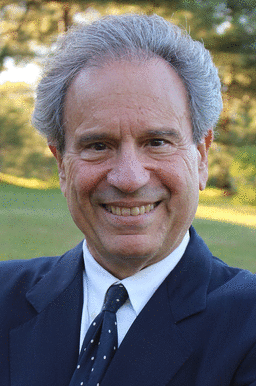
Lawrence Zupan (R) |
Bernie Sanders is the single most popular senator in America, with a remarkable 63% approval rating. As a leader of the Trump resistance, he's a great match for a state that gave 70% of its votes to non-Trump candidates. He ran in the Democratic primary, won, and will decline the nomination, ensuring that there is no Democrat on the ballot to siphon votes from him. Of course, he caucuses with the Senate Democrats, so he is an IINO (Independent In Name Only). The Republican Party of Vermont, such as it is, hasn't bothered to get involved in elections in the state (except for governor) in years. So, perennial candidate H. Brooke Paige got the GOP Senate nomination on his own. Then he dropped it, so he could focus on one of the other five offices he got nominated for, which caused the slot to devolve upon businessman Lawrence Zupan, a political unknown. While Vermont's meteorolgical climate is very different from Hawaii's, its political climate is about the same. Bernie is as sure a shoo-in as they come. |
Republican-held seats
Arizona 
| Challenger | Challenger | Notes Polls |

Martha McSally (R) |

Kyrsten Sinema (D) |
The Democrats view this as one of their best pickup opportunities. Jeff Flake is one of the least popular senators in America, so he decided to "retire" before the voters retired him. The Republican establishment supported Rep. Martha McSally, and got what they wanted, as neither Joe Arpaio nor Kelli Ward gained enough traction to pose a serious threat. However, McSally will now have to pivot to the center, which may not be easy. The Democrat is Rep. Kyrsten Sinema, the only openly-bisexual person in Congress. She is conservative enough to have a solid chance in Arizona, especially since McSally is not all that popular with supporters of Ward and Arpaio. She also has the advantage of having spent primary season saving (most of) her money, and not getting bloodied. |
Mississippi
| Incumbent | Challenger | Notes Polls |

Roger Wicker (R) |

David Baria (D) |
There was a time when Democrats could win elections in Mississippi even if they nominated a yellow dog, but then the Civil Rights Movement happened. The last time the state sent a Democrat to the Senate was in 1982, when John C. Stennis was elected to the final term of a career that began in 1947. Roger Wicker is going for his third term in 2018. Mississippi Democrats know what happened in the Alabama Senate election last year, so a couple of them actually filed to run. David Baria, the minority leader of the Mississippi house, won the primary. It is a longshot for him, though. Mississippi has more black citizens (37%) than Alabama (25%), so if Baria can turn out all the black voters and the white suburban voters, he might actually have a chance. But it is a very small one. |
Mississippi-special
| Incumbent | Challenger | Notes Polls |

Cindy Hyde-Smith (R) |

Mike Espy (D) |
Thad Cochran (R) resigned due to ill health, and Gov. Phil Bryant (R) appointed the state agriculture and commerce secretary, Cindy Hyde-Smith (a former Democrat) to the Senate to replace him. Her Democratic opponent is Mike Espy, who was Bill Clinton's secretary of agriculture. Since the state is 37% black, and suburban voters are trending Democratic, Espy has a shot at getting more votes than Hyde-Smith. A complicating factor, though, is Mississippi's jungle primary system. Technically, the Nov. 6 election in Mississippi is a primary, not a general election, and if no candidate gets more than 50%, there will be a runoff in December. Right-wing firebrand Chris McDaniel is also running, and might siphon enough votes from Hyde-Smith to force a runoff. If he pulls that off, it will one-on-one with Hyde-Smith against Espy in December. God help us if control of the Senate comes down to that last race. Presidential races are already past the billion-dollar mark, but we might see a billion-dollar Senate runoff if it comes down to that. |
Nebraska
| Incumbent | Challenger | Notes Polls |

Deb Fischer (R) |

Jane Raybould (D) |
Fischer has moderate approval ratings (44%) and is having some success at fundraising ($5.6 million). However, her weakness is healthcare—Nebraska would be among the states hurt most by repealing the ACA and Fischer has already faced more than one angry town hall crowd. Amazingly enough, the Democrats did find a candidate, Lincoln City Councilwoman Jane Raybould, but she is virtually unknown in the state and has very little chance of winning. What the Democrats should have done is dig up William Jennings Bryan and run him. |
Nevada 
| Incumbent | Challenger | Notes Polls |

Dean Heller (R) |

Jacky Rosen (D) |
Heller is the most endangered Republican senator in 2018, first and foremost because he's the only one from a state won by Hillary Clinton, but also because he's aggravated Latino voters with his support for Donald Trump and women voters with his votes to defund Planned Parenthood. His approval rating is underwater (37% approve, 40% disapprove). The Democrats have now settled on their candidate, Rep. Jacky Rosen (D), who represents a Las Vegas suburb in the House. She has the backing of former senator Harry Reid's considerable machine, which is still potent. Both parties are going to put everything they've got into this one, which is currently a tossup. |
Tennessee 
| Challenger | Challenger | Notes Polls |

Marsha Blackburn (R) |

Phil Bredesen (D) |
When Donald Trump hounded "Liddle Bob Corker" out of the race in 2018, he may not have done his party a favor. Corker would have easily won. The open seat attracted two-term former governor Phil Bredesen (D). The Republican nominee is Rep. Marsha Blackburn, who many Republicans feel is too right-wing to beat the popular Bredesen. Corker was thinking of re-entering the race, but he said he would only do that if Trump endorsed him, which he didn't. So it is Bredesen vs. Blackburn, making the election potentially a Democratic pickup. Especially if allegations that Blackburn illegally coordinated with super PACs turn out to be true. |
Texas 
| Incumbent | Challenger | Notes Polls |
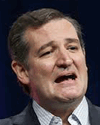
Ted Cruz (R) |
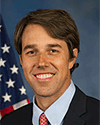
Beto O`Rourke (D) |
There's no doubt that Ted Cruz (R) ought to be a solid favorite to win election to the Senate for a second time. He has huge name recognition and a solid base of support. But he also has a lot of Texans who don't like him because he is using them as a stepping stone to bigger and better things, and/or because he's flip-flopped so dramatically on Donald Trump. Plus, if there's one guy the NRSC won't go out of its way to help, it's Ted Cruz, who is pretty much universally loathed by his Senate colleagues, of both parties. He drew a serious Democratic challenger in Rep. Beto O'Rourke (D), whose Catholicism, folksy manner, and ability to speak Spanish fluently play well in the Lone Star State among Latinos. O'Rourke, who could pass for Bobby Kennedy in many ways, has been a dogged campaigner, visiting all of Texas' 254 counties. Polls show him within a few points of Cruz, who has swallowed his pride and is begging Donald Trump to come campaign for him. All things considered, it's still Texas, so Cruz is the favorite, but in a big blue wave, this could be a real upset. |
Utah
| Challenger | Challenger | Notes Polls |
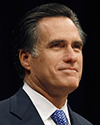
Mitt Romney (R) |

Jenny Wilson (D) |
Sen. Orrin Hatch (R) decided not to run for reelection and, as you might have heard, Mitt Romney (R) is running to replace him. Although Romney is a standard conservative Republican, he has little interest in Senate business, so his end game here is something of a mystery. Does he want to lead the Trump opposition? Set up another presidential bid? Try to break the gridlock in Congress? Who knows? During the campaign, Romney is likely to focus entirely on Utah issues because although he is a Mormon, he grew up in Michigan and has lived most of his adult life in Massachusetts, so he is open to charges of being a carpetbagger. By staying in state the entire campaign and holding lots of town halls and rallies, he can make his campaign about helping the people of Utah, rather than about his dislike of Trump. However, after he is elected (not "if he is elected"), the gloves will come off and he will probably be in Trump's "hair" all the time. Surprisingly, the Democrats actually found someone who wanted to add a failed Senate run to her CV, Jenny Wilson (D), a member of the Salt Lake City Council. Her father was mayor of SLC long ago, so maybe she is using the publicity from a Senate run to shoot for mayor some day. |
Wyoming
| Incumbent | Challenger | Notes Polls |

John Barrasso (R) |

Gary Trauner (D) |
And finally, it's the biggest slam dunk of them all for the Republicans. Wyoming is ruby red, and the last three Senate elections have been decided by 55, 54, and 47 points, respectively. Barrasso could beat up a reporter the night before the election, and then get caught in bed with a live boy, a dead girl, and a goat, and he'd still win. The Democrats had to check for a while to see if any members of the party actually live in Wyoming, but eventually they found one, a businessman named Gary Trauner (who is originally from New York). His logo features a nice image of a buffalo, but that is not going to do the trick. Barasso is as safe as can be. |
